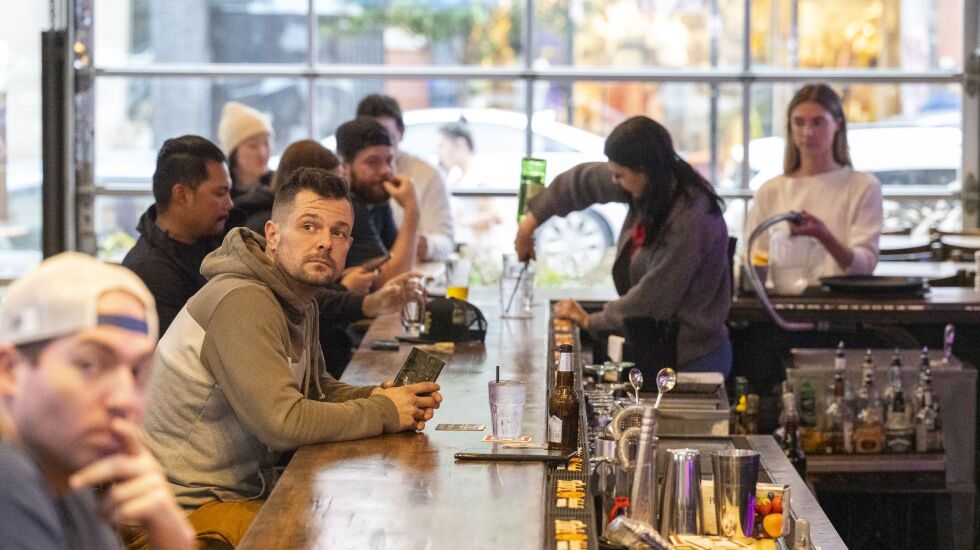
Chicago’s alderpersons, most of whom recently accepted a raise, will decide Wednesday whether Chicago workers in some of the lowest-paid, lowest-opportunity occupations deserve one too.
We hope they side with our city’s restaurant workers and other tipped workers.
As of July 1, the city’s minimum wage for most workers is $15.80 an hour. While this increase is a significant step forward in ensuring workers can afford to live in the city where they work, it doesn’t include tipped workers, who only earn 60% of that because of the subminimum wage.
Women Employed urges the City Council to pass the proposed ordinance that phases out the subminimum wage over five years and ensures that tipped workers will rightly earn the full minimum wage.
For 50 years, we have pursued equity for women in the workforce, especially for women in low-paid roles and Black and Latina women. Due to occupational segregation, Black and Latina women are far more likely to work in occupations that rely on tips. In addition to being in some of the lowest-paid, lowest-opportunity occupations, women working in these jobs are at greater risk of sexual harassment, wage theft, and unstable and unpredictable schedules, among other injustices.
We recently worked with the Mayor’s Women’s Advisory Council, World Business Chicago, and the Civic Consulting Alliance to research the economic impact of the pandemic on women in Chicago and to offer viable solutions to address disparities. As part of that research, we found that women make up 70% of the wait staff in Chicago, and of all 746 occupations analyzed, wait staff had the lowest median annual earnings, just $21,000.
Subminimum wage drives poverty
We all know $21,000 is not enough for a woman to live in dignity and to support herself or her family in this city. The subminimum wage is a driver of poverty, and it must end if we are to build an economically sustainable city for everyone who works and lives here.
While naysayers will claim that removing the subminimum wage will kill small businesses or result in patrons no longer tipping wait staff, the data shows that is not the case in other parts of the country that have removed the subminimum wage. Most patrons are not even aware that servers make less than the minimum wage.
Seven states, including nearby Minnesota, currently require a full minimum wage for restaurant workers, with tips on top. Some have had their laws in place for decades. According to recent reports, these seven states have higher restaurant job growth, higher small business growth, and higher tipping averages than Chicago. These states also report half the rate of sexual harassment in the restaurant industry and the loss of fewer restaurants during the pandemic than Illinois.
The bottom line is workers shouldn’t have to rely on the generosity of strangers to earn their wages. And the reality is restaurant workers are demonstrating they have grown intolerant of their working conditions. Thousands of tipped workers in Chicago have left the restaurant industry and are not willing to return without a full and fair wage. We applaud the more than 100 Chicago employers (and counting) that have increased their wages and are recruiting staff back to their establishments with fair pay.
Getting to this point was not easy, and we still need to cross the finish line. We thank the many advocates who came together to draft a strong ordinance that puts workers first. We applaud Mayor Brandon Johnson for standing firm on his campaign promise of pay equity and the Illinois Restaurant Association for coming to the table and not opposing the ordinance.
Ending the subminimum wage for tipped workers is a necessary and overdue step toward economic, gender, and racial justice in Chicago, chipping away at a persistent pay equity gap. We urge the City Council to pass this ordinance and make Chicago the largest city in the country to independently phase out subminimum wages for tipped workers.
Cherita Ellens is president and CEO of Women Employed.
Send letters to letters@suntimes.com
The views and opinions expressed by contributors are their own and do not necessarily reflect those of the Chicago Sun-Times or any of its affiliates.







